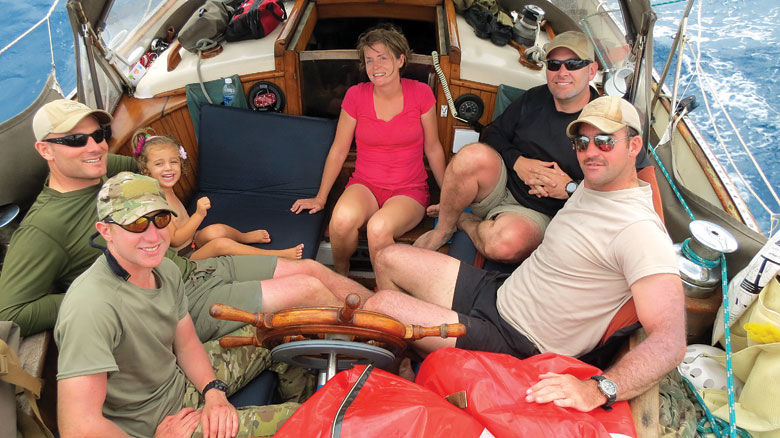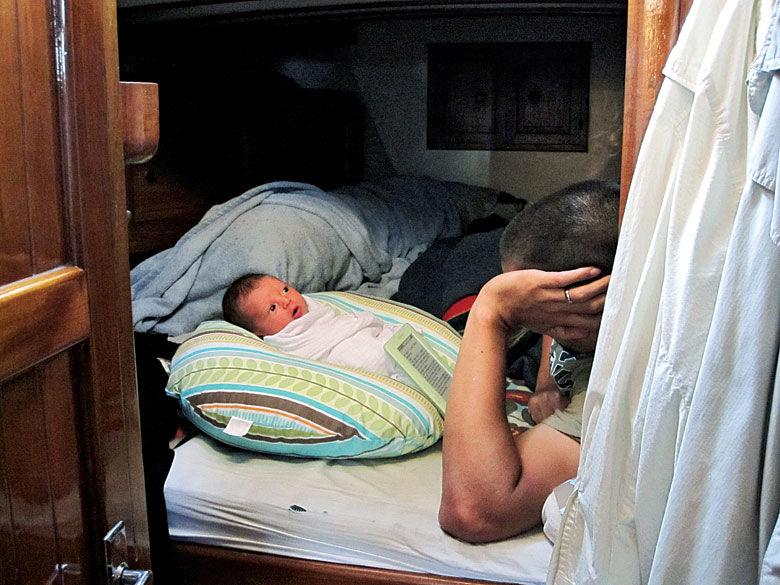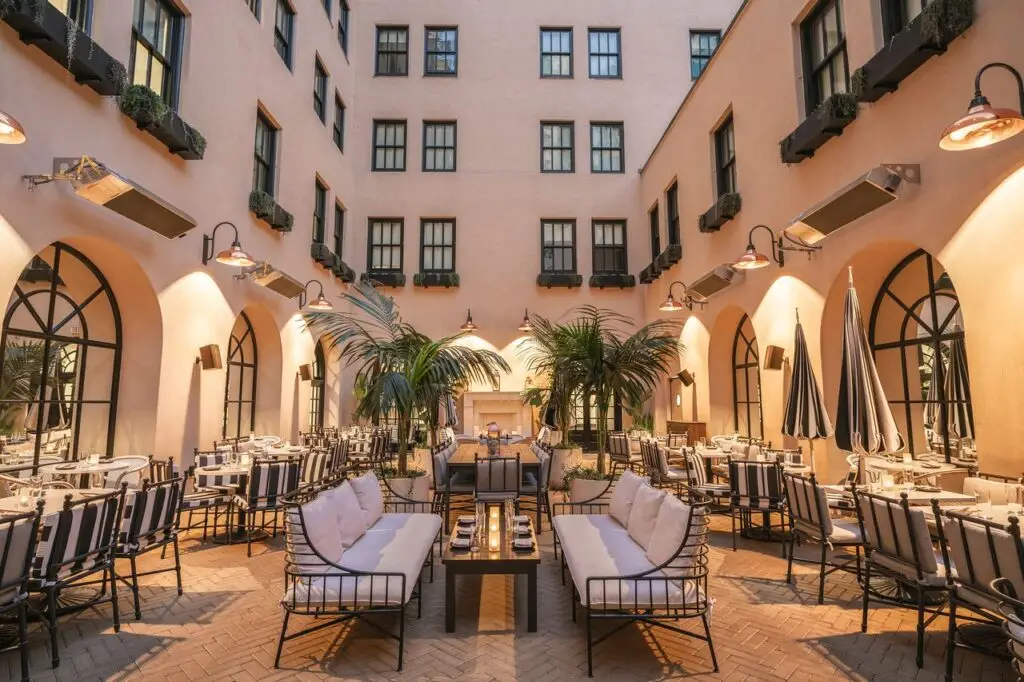The Kaufmans’ journey on their sailboat, Rebel Heart, comes to an alarming and heartbreaking end, igniting a surge of media attention and fury at the rescue’s estimated $663,000 price tag and raising concerns for the safety of their young children. Charlotte Kaufman, mother of two, speaks publicly for the first time.

Charlotte and Cora Kaufman with parajumpers
Cora and Charlotte Kaufman in the cockpit of Rebel Heart with the four parajumpers of California’s Air National Guard 129th Rescue Wing.
Cora and Charlotte Kaufman in the cockpit of Rebel Heart with the four parajumpers of California’s Air National Guard 129th Rescue Wing.
We were 900 nautical miles off the coast of Mexico when we made the decision to push the EPIRB (an emergency beacon) on our sailboat, signaling for help. Put simply, our one-year-old daughter, Lyra, became sick while we were underway. Her condition continued to deteriorate, even on antibiotics, and we needed to get her help. Additionally, our boat suffered damage during several squalls in the Inter-Tropical Convergence Zone, leading to a complicated, culminating series of events requiring a rescue and the scuttling of our boat to prevent it from becoming a navigational hazard (scuttling is cutting holes in a boat to force it to sink).
While sitting on the boat, awaiting rescue, we never expected to be greeted by such a firestorm of criticism upon our arrival at home. Frankly, we can’t take any of the criticisms thrown at us seriously.
My husband Eric and I believe that traveling with our children will enrich their lives (and ours), give them a great advantage over their peers, and teach them life skills that many Americans who never travel and who can’t speak another language will ever know.
We believe in living without debt, in living with few material possessions, and in saving and planning studiously to have the kind of life that brings that type of freedom. To us, the experiences you accumulate in life are worth much more than what you own or what you can buy.

Eric Kaufman reading Thoreau to Cora
Eric Kaufman reading Thoreau to Cora, one week old, in the v-berth of Rebel Heart.
Eric Kaufman reading Thoreau to Cora, one week old, in the v-berth of Rebel Heart.
We believe that children who grow up with parents who are actively trying to achieve their dreams will be empowered and motivated to reach for their own life’s dreams in turn. Likewise, children who are “too young to remember” a voyage across the Pacific Ocean, like our daughter Lyra, will still benefit from living in a family that is meeting challenges and enriching its lives together. We had (and have) no desire to sit in stasis in the suburbs until our youngest child is approximately five or six years old, and then begin adventuring in the world. We have actively set up our lives to give us the ability to not live in the blasé, “safe” world of suburbia or Middle America. We understand real versus perceived risks and know that a life at sea is far less dangerous than a life with school shootings, car accidents, processed foods, and sedentary living.
Our children, like most boat kids, experience life as it has been lived for far longer than the reality of America’s current style of living. Kids on boats grow up around knowledgeable, competent adults who have to make serious decisions about life every day. They learn the accurate meaning of safety and caution, and become invested in these decisions much earlier than their peers. My three-year-old’s world has geography, geometry, algebra, and the natural sciences intertwined from morning until night. Our “poor” children don’t have a pet dog, a white picket fence, or a Strider Balance Bike; they also don’t have Nature Deficit Disorder. I’ll take a child who can talk to you about tidal flows, wave sets, and navigating by the stars any day over the alternative of discussions about Monster High dolls, TV shows, and the latest version of their iPads.
We believe that most people lead lives of quiet desperation, and we have vowed to not let our lives end up accordingly. We want to squeeze out every precious drop of our existence together, because tomorrow maybe I’ll die, or Eric will die, and where will we be then? We don’t believe in waiting for far-off “afters,” like after Eric gets a promotion, after Cora finishes kindergarten, after the girls graduate, or after we retire. No. Life is too short and too valuable to gamble on pushing your dreams off until later. We believe in going now, and doing it with gusto.
Lastly, we believe that despite everything, people are really good at heart. Coming back from a monumental event like having a sick child at sea and simultaneously losing your home is beyond world-changing; we have decided to ignore the bleating of some Internet commenters and instead focus on the humanity of the people who have supported us in our lifestyle choice, and in our careful decision to seek help when our daughter and our vessel needed it.
It is not easy to pursue a life at sea, or a life outside of the “box,” but it is worth it. If you are thinking of doing the same thing with your life,
PARTNER CONTENT
I say do not hesitate for a (rebel) heartbeat.


















